Bid Strong, Bid Smart – Try Our Hotel Building Cost Estimating Service!
- Accurancy
- Efficiency
- Transparency
- Customization
- Time Saving
- Professionalism
- Cost Control
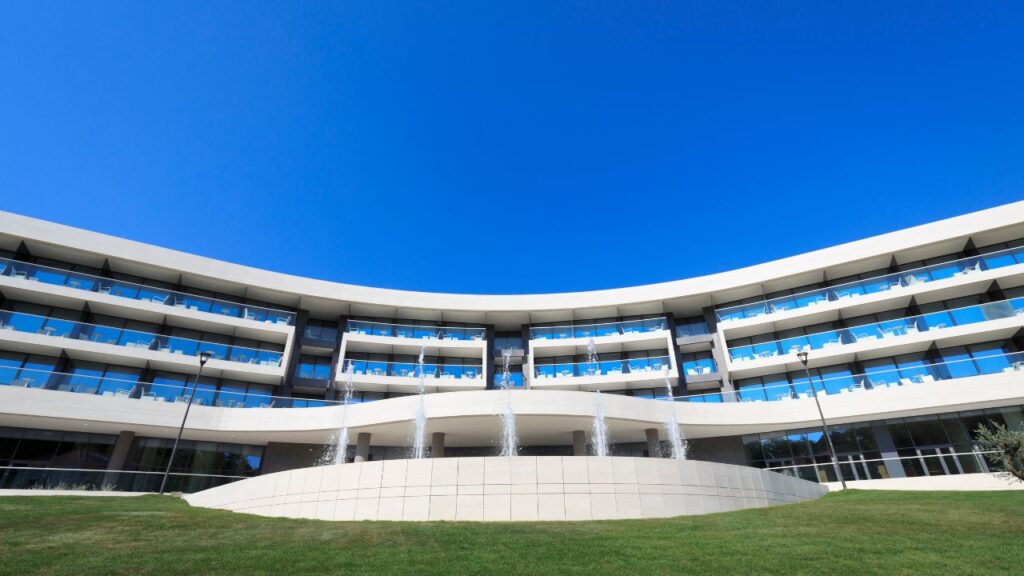
Embarking on the construction journey of a hotel necessitates a comprehensive understanding of the various elements contributing to the overall cost. Among these elements, concrete pouring stands out as a pivotal phase, playing a crucial role in establishing the foundation and structural integrity of the building. This article delves into the factors influencing the cost of concrete pouring in hotel projects, providing valuable insights for developers, architects, and project managers.
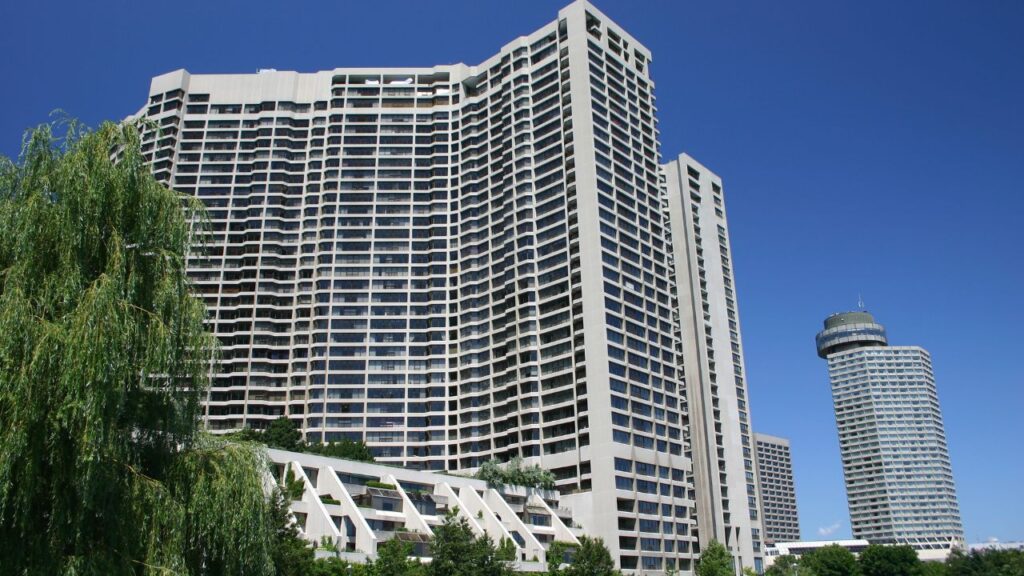
Concrete pouring is a fundamental step in hotel construction, where the quality of the foundation and structure is paramount. This process involves the precise placement of concrete to form slabs, foundations, walls, and other essential components of the building. The success of subsequent construction phases hinges on the accuracy and reliability of the concrete pouring process.1
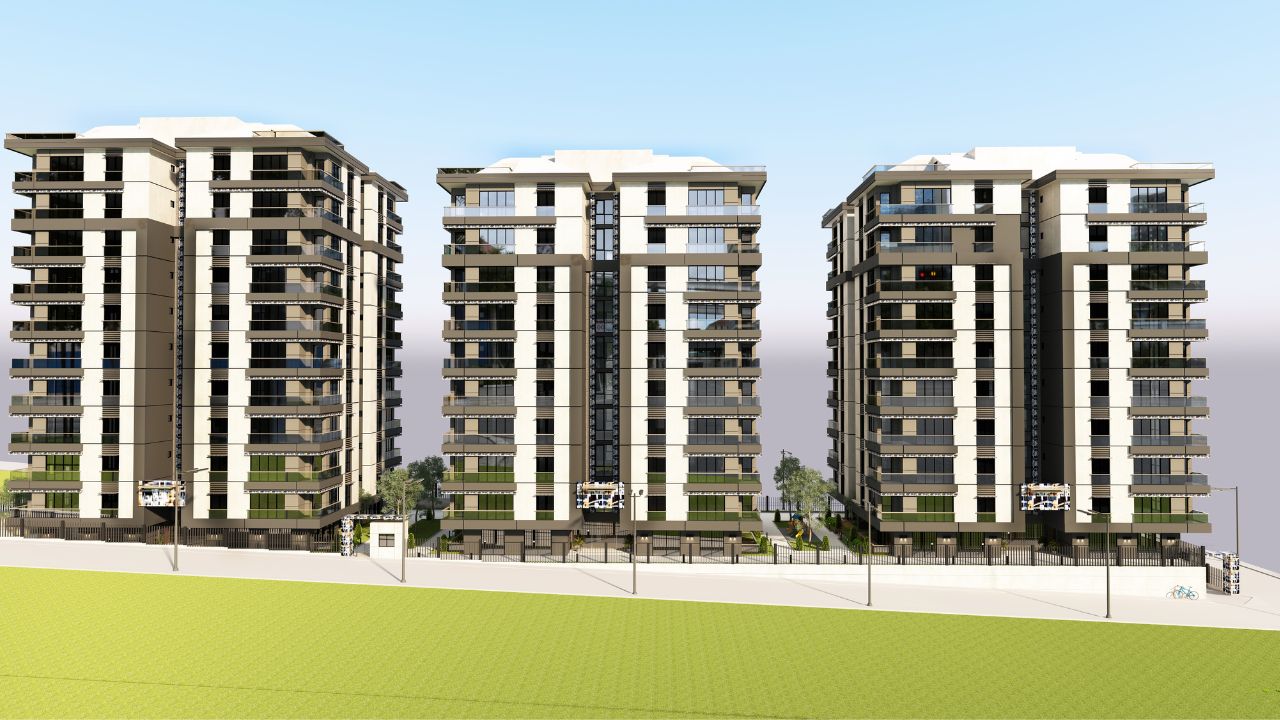
Make Informed Design Decisions Showcase Your Design Ideas
Get RenderingSeveral factors contribute to the cost of concrete pouring in hotel construction, and a nuanced understanding of these elements is crucial for effective cost management.
The volume and thickness of concrete required for a hotel construction project are pivotal determinants of overall costs. Larger structures or the incorporation of thicker slabs necessitate a greater amount of concrete, leading to increased expenditures on both materials and labor. In instances where expansive foundations or robust structural elements are essential, the need for a substantial volume of concrete becomes a significant cost factor. Therefore, accurate assessments of the project’s volume and thickness requirements are crucial during the planning phase to ensure optimal resource allocation and budget management.
The choice of concrete mix design and its quality is a critical factor influencing costs in hotel construction. Opting for high-performance mixes or specialized formulations may entail higher material costs, but it offers distinct advantages in terms of enhanced durability and overall performance. These specialized mixes may be tailored to meet specific project requirements, such as increased strength or resistance to environmental factors. While the upfront costs may be elevated, the long-term benefits in terms of structural integrity and reduced maintenance can outweigh the initial investment, making the choice of mix design a strategic consideration in cost management.
The accessibility of the construction site is a pivotal aspect impacting concrete pouring costs. In cases where the site is challenging to reach or maneuver, additional equipment and labor may be required to overcome logistical hurdles. This could involve the use of specialized transportation for concrete delivery or the deployment of equipment capable of navigating difficult terrains. Site accessibility considerations are crucial not only for efficient concrete pouring but also for minimizing delays and avoiding potential disruptions, emphasizing the need for meticulous planning and coordination in challenging construction environments.
Skilled labor and specialized equipment form the backbone of the concrete pouring process in hotel construction. The costs associated with skilled labor, particularly in regions with high demand for construction expertise, can significantly influence overall project expenses. Simultaneously, the deployment of specialized equipment tailored to the specific requirements of the project incurs additional costs. Efficient management of skilled labor, coupled with the strategic use of advanced equipment, is imperative for optimizing costs without compromising on the quality and precision of the concrete pouring process.
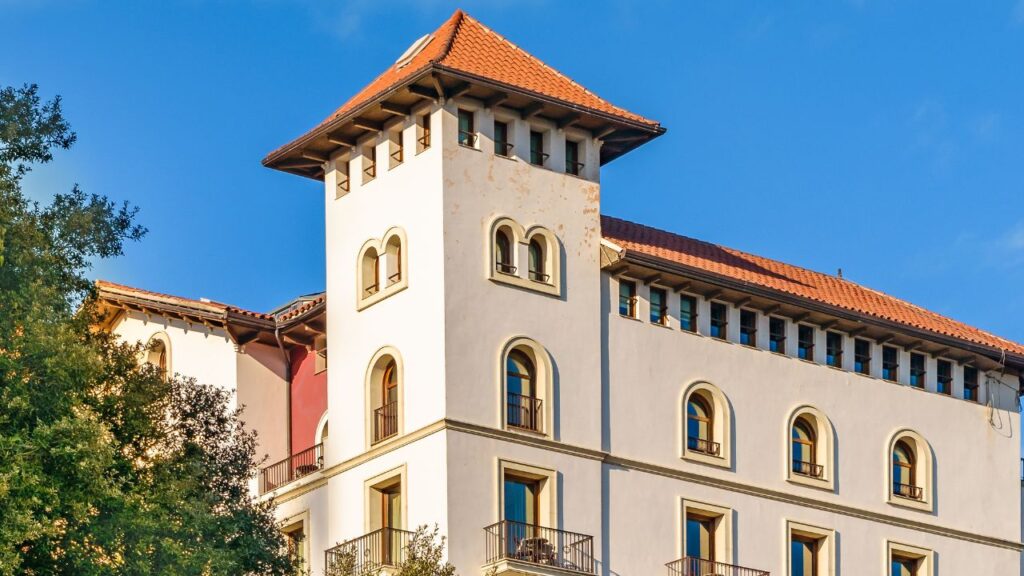
The impact of weather conditions on the concrete pouring process is a nuanced consideration that extends beyond immediate concerns. Adverse weather, such as extreme temperatures, precipitation, or high humidity, can affect the curing and setting of concrete, potentially compromising its quality. To mitigate these challenges, additional measures may be necessary, such as the construction of protective enclosures or the use of accelerators to maintain the required concrete curing conditions. While weather-related measures contribute to costs, they are essential for preserving the integrity of the concrete and ensuring the long-term durability of the hotel structure. Thorough planning and proactive strategies are vital to address weather-induced challenges effectively.
Efficient cost management in concrete pouring involves strategic decision-making and proactive measures at various stages of the construction process.
Precise planning is the bedrock of a successful and cost-effective concrete pouring process in hotel construction. Thorough planning involves meticulous assessments of the required concrete volumes and specifications, considering the unique aspects of the project. Accurate estimations help minimize excess material and labor costs, ensuring that resources are allocated efficiently. This phase is critical for establishing realistic timelines, coordinating material deliveries, and optimizing the workflow. An emphasis on precise planning allows for a streamlined execution of the concrete pouring process, preventing unnecessary expenses associated with overages, delays, or rework due to inadequate preparation.

Collaborating with concrete experts to optimize mix designs is a strategic approach to balancing performance requirements with economic considerations. The choice of concrete mix design has a direct impact on the overall quality and durability of the structure. By working closely with experts, developers and project managers can tailor mix designs to meet specific project needs while optimizing costs. This collaborative process considers factors such as strength requirements, environmental conditions, and long-term durability. The upfront investment in an optimized mix design can yield substantial returns by enhancing the structural integrity of the hotel and minimizing maintenance costs over its lifecycle.
The utilization of advanced concrete pouring equipment and technology represents a significant opportunity for efficiency gains and cost reduction in hotel construction. Leveraging automated or specialized equipment can streamline the pouring process, reducing the reliance on manual labor and expediting the overall construction timeline. While there may be upfront costs associated with acquiring or renting advanced equipment, the long-term benefits in terms of labor savings and enhanced productivity make this investment financially prudent. The strategic use of technology not only improves efficiency but also contributes to the precision and accuracy of the concrete pouring process, ensuring high-quality results.
Developing comprehensive contingency plans for adverse weather conditions is an essential component of effective cost management in hotel construction projects. Unpredictable weather can pose significant challenges to the concrete pouring process, potentially leading to delays and additional costs. Implementing protective measures, such as temporary enclosures or heated curing systems, can help maintain optimal conditions for concrete curing during inclement weather.
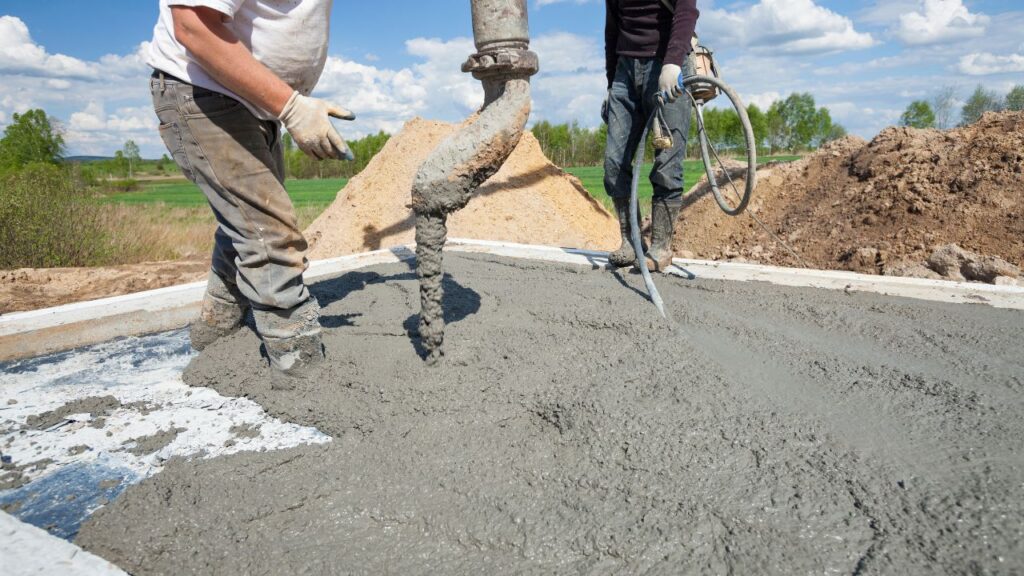
Additionally, alternative scheduling and proactive monitoring of weather forecasts allow construction teams to adjust plans accordingly, minimizing the impact of adverse conditions on the project timeline and budget. Weather contingency planning exemplifies a proactive approach to risk management, emphasizing adaptability and resilience in the face of unpredictable environmental factors.
Offering a precise cost estimate without specific project details is challenging. Nevertheless, for general guidance, here is a range to provide an overview:
It’s important to note that these figures serve as initial benchmarks, and actual costs may vary based on factors such as project intricacies, mix design preferences, site accessibility, and weather conditions. Consulting with construction professionals is recommended for more accurate and tailored cost assessments.
The process of concrete pouring in hotel construction is a pivotal phase that significantly influences the overall project cost and structural integrity. Understanding the key factors, including volume, mix design, site accessibility, labor, equipment, and weather conditions, is crucial for effective cost management. By implementing strategic measures such as precise planning, optimized mix design, advanced equipment use, and weather contingency plans, developers and project managers can enhance efficiency, reduce costs, and ensure the success of the hotel construction project. While providing a general cost estimate, it’s essential to recognize that actual expenses may vary, underscoring the importance of consulting with construction professionals for tailored and accurate assessments based on specific project requirements and variables.
Concrete pouring is a crucial step in establishing the foundation and structural integrity of a hotel. It involves the precise placement of concrete to form essential components such as slabs, foundations, and walls, influencing the success of subsequent construction phases.
The volume and thickness of concrete required significantly affect costs. Larger structures or thicker slabs demand more concrete, leading to increased material and labor expenses. Accurate assessments during the planning phase are essential for optimal resource allocation.
The choice of concrete mix design and its quality directly influences costs. Opting for high-performance mixes may incur higher material costs, but it offers advantages in terms of enhanced durability. The upfront investment can result in long-term benefits, making it a strategic consideration in cost management.
Site accessibility is crucial, especially if the construction site is challenging to reach. Additional equipment and labor may be required to overcome logistical hurdles. Meticulous planning and coordination are emphasized to ensure efficient concrete pouring and minimize delays.
Cost optimization involves precise planning, optimized mix design, advanced equipment use, and weather contingency plans. Thorough planning minimizes excess costs, collaborating with experts tailors mix designs, advanced equipment enhances efficiency, and weather contingency plans mitigate challenges, ensuring successful and cost-effective hotel construction.
Here I am going to share some steps to get your hotel building concrete pouring cost estimate report.
You can send us your plan on info@estimatorflorida.com
Before starting your project, we send you a quote for your service. That quote will have detailed information about your project. Here you will get information about the size, difficulty, complexity and bid date when determining pricing.
Our team will takeoff and estimate your project. When we deliver you’ll receive a PDF and an Excel file of your estimate. We can also offer construction lead generation services for the jobs you’d like to pursue further.



561-530-2845
info@estimatorflorida.com
Address
5245 Wiles Rd Apt 3-102 St. Pete Beach, FL 33073 United States
561-530-2845
info@estimatorflorida.com
Address
5245 Wiles Rd Apt 3-102 St. Pete Beach, FL 33073 United States
All copyright © Reserved | Designed By V Marketing Media | Disclaimer